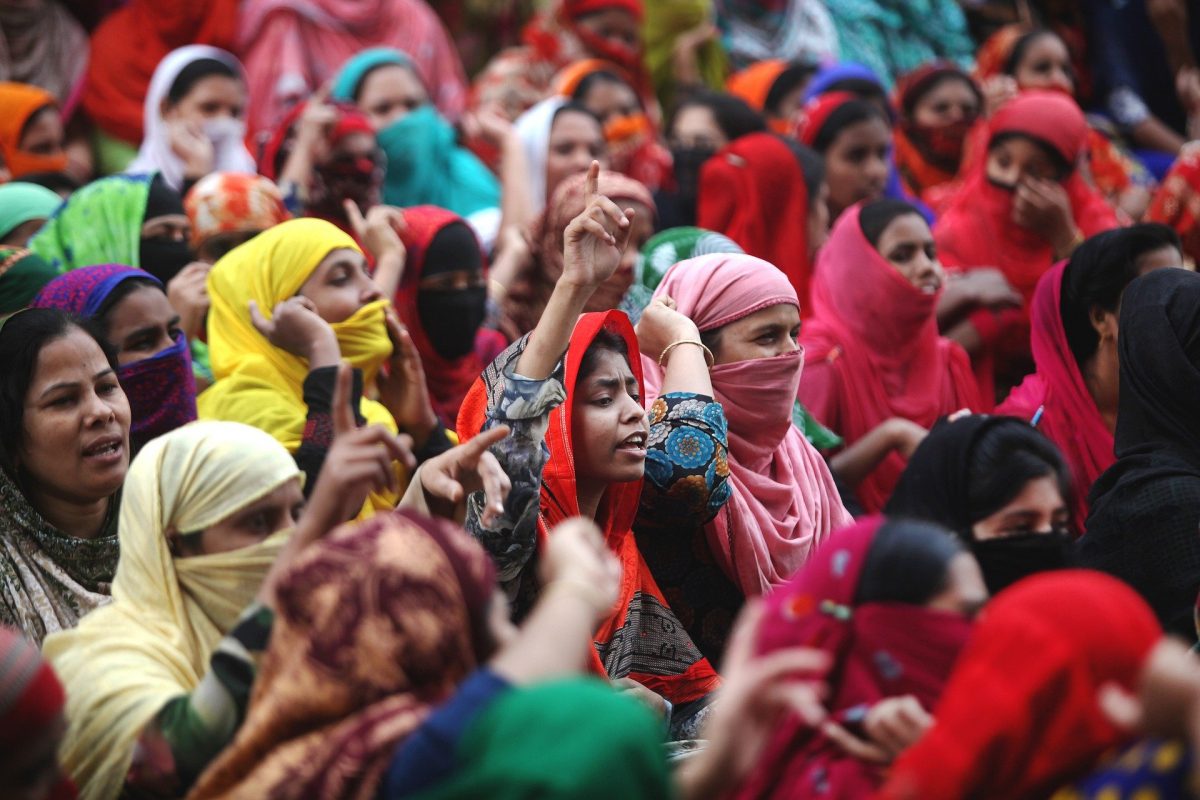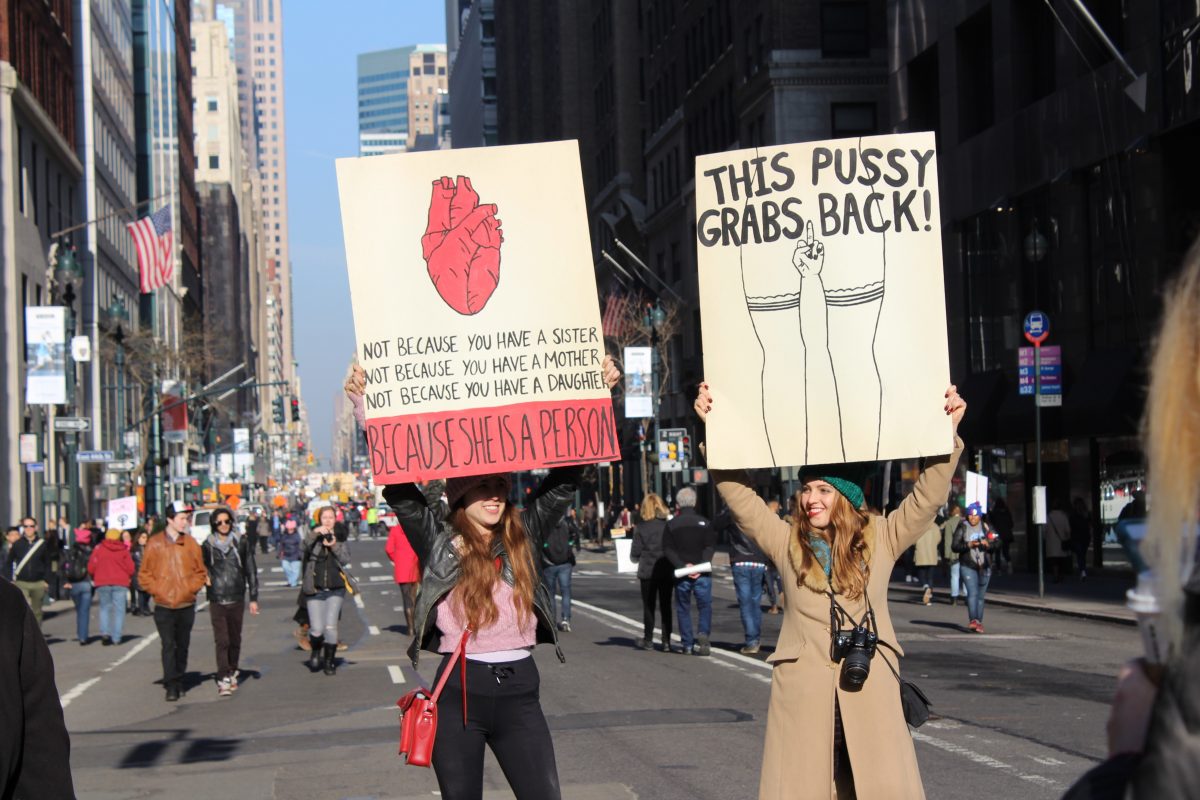
This Women’s History Month, let’s take a moment to recognize the history being made in front of us.
Over the past year, landmark policies have been passed in countries across the world, many of them granting women the basic rights the United States has had for decades. But there is still so much work to do, especially as more horrific details come to light about Sarah Everard’s abduction and death by a London police officer, which has sparked mass protests in Britain.
While women in different parts of the world continue to suffer in different ways — especially now, during a global pandemic — acknowledging these victories, though long overdue, will hopefully renew and strengthen calls for gender equality.
[Related: 17 Inspirational Women Whose Startup Stories Will Kickstart Your Dreams]
Saudi Arabia: Women Can Fight Now, Legally
Through a new admissions process that opened in February, women between 21 and 40 years old may join the Saudi Arabia armed forces — from the navy to air defense to medical services — marking a key moment for a country where women only gained the basic right to drive in 2018. But this step forward should be taken with a grain of salt. Activist Loujain al-Hathloul, who fought for the right to drive, was imprisoned in 2018 and only released last month, spending three years locked up even after her efforts to get women behind the wheel were successful. Whether the military will actually change remains to be seen, but women’s rights groups will definitely be watching.

Lebanon: Defining Harassment
Up until 2017, rapists in Lebanon could get off scot-free by agreeing to marry their accusers. It took years of billboards, slogans and livid Lebanese activists to end this oppressive, disturbing tactic. Now, with new legislation enacted in December, sexual harassment has been criminalized for the first time in Lebanon. The law provides a clear definition of sexual harassment that also acknowledges online harassment. Those accused can face up to four years imprisonment and harsh fines, and victims and testifying witnesses are guaranteed protection.
Lebanon has also made fundamental changes to its domestic violence laws: abuse by an ex-husband will now be treated as domestic violence, and mothers who leave their husbands because of abuse may take custody of their children until they are 13 years old.
Mexico: Protection for Women With Disabilities
In February, the Mexican senate passed a measure that women’s disabilities must be taken into account when courts decide whether to grant protection to victims of violence. This marked a huge win for several advocate groups of women with disabilities who sent in the legislative proposal to Senator Malú Micher themselves. But this wasn’t the only demand they had. Other proposals sent to the chair of the Commission for Gender Equality called for more disability-friendly shelters and support services, including personal assistance in daily tasks and emergency systems for the hearing impaired, which still remain under consideration.
Pakistan: Sexual Offenders Are Held Accountable
Pakistan is another country taking action against rape culture. Under a new law, trials of accused rapists will not only be accelerated, but convicted serial sex offenders may be chemically castrated as well. The law was put into motion when Pakistani activists declared they had enough after a woman was raped in front of her children in September, and the police chief in Lahore blamed her for what happened. Prime Minister Imran Khan passed the landmark anti-rape law just days later.
The country also banned ‘two-finger virginity tests’ in January. Traditionally, this test was used to determine whether a woman had been sexually active or found to engage in premarital sex. “It is a humiliating practice, which is used to cast suspicion on the victim, as opposed to focusing on the accused,” Justice Ayesha A. Malik of the Lahore High Court wrote.
[Related: This International Women’s Day, Meet the 22-Year-Old Climate Activist From Pakistan]
Argentina: Say Yes to Choice

In 2018, attempts to legalize abortion in this South American country failed. By December 2020, Argentina was rid of its abortion-opposing president, Mauricio Macri, and became the largest country in Latin America to legalize terminating pregnancies. According to The Washington Post, abortion was one of the biggest issues for voters during the 2019 Argentinian presidential campaign, especially after Ni Una Menos (“Not One Less”) — a coalition of women formed in 2015 — framed abortion as a matter of public health, not individual choice. Their efforts were successful.
[Related: Latin America Is the New Hub for Female STEM Entrepreneurs]
Scotland: Say Goodbye to Period Poverty
“Scotland will not be the last country to make period poverty history,” Monica Lennon, the woman behind the Period Products bill, told CNN. Scotland was the first country to make pads and tampons available for free in November. Period poverty is an issue that affects 500 million people around the world who cannot afford menstrual products. In many countries, like India, women aren’t given the “right to bleed” — periods are a matter to be kept strictly private, as if they don’t exist. Lennon said that up until recently this was the case in Scotland, but now menstruation is “mainstream.”
The World: With All Eyes on Equality, Hope Remains
In Iran, the #MeToo movement is on the rise: the government has indicated plans to outlaw sexual harassment. Similarly, government officials in Spain signaled greater legislation against sexual violence last year, although no action has been taken since the pandemic took its toll. In Kazakhstan, the first ever Women’s March recently took place on Women’s Day. Protests for women’s rights are also catching on across the UK, Europe, Turkey and Poland. And in the United States, there is momentum for women and mothers to be recognized for their unpaid labor. As women in every corner of the world continue to demonstrate hope and resilience, especially during a global pandemic, the progress is welcome.
Senior Staff Writer Corinne Lestch contributed to this report.

